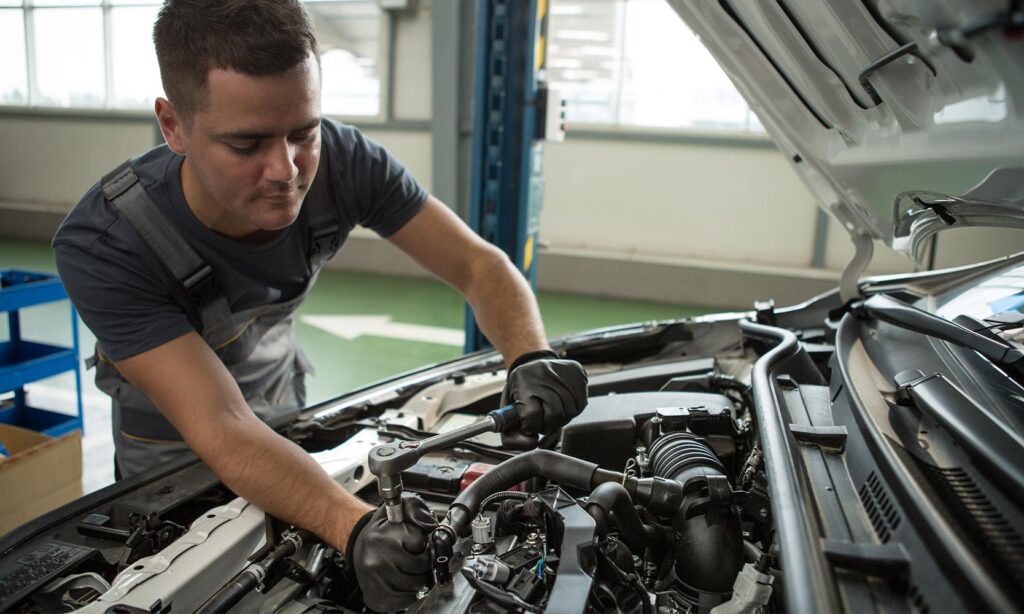
Introduction to Pre-purchase Car Inspection
When considering the acquisition of a new vehicle, conducting a pre-purchase car inspection is a crucial step in the decision-making process. It ensures that buyers have a comprehensive understanding of the vehicle’s condition, potential issues, and overall value. Pre-purchase inspections offer peace of mind and assist buyers in making informed decisions. A reputable service provider like SAB Safety Certificates offers comprehensive pre-purchase car inspection services in Brisbane, ensuring buyers receive accurate assessments before finalizing their purchase decisions to get https://www.sabsafetycertificates.com.au/car-pre-purchase-inspection-brisbane.
Comprehensive Examination of Vehicle History
Before delving into the physical inspection of the vehicle, it’s essential to examine its history thoroughly. This involves verifying crucial documents and inspecting the Vehicle Identification Number (VIN) to uncover any past incidents or discrepancies.
Document Verification
The first step in assessing a vehicle’s history is to review its documentation. Maintenance records provide insights into the vehicle’s service history, revealing any recurring issues or neglected maintenance tasks. Additionally, examining the accident history and title status helps buyers understand the vehicle’s past and potential red flags.
VIN Inspection
Inspecting the VIN is a critical aspect of pre-purchase inspections. By decoding the VIN, inspectors can gather information about the vehicle’s manufacturer, model year, and production details. Checking for recalls associated with the vehicle ensures that any safety or performance-related issues have been addressed. Moreover, verifying the vehicle’s authenticity helps prevent potential cases of fraud or identity theft.
Thorough Physical Inspection of the Vehicle
Once the vehicle’s history has been reviewed, the next step is to conduct a comprehensive physical inspection. This involves examining both the exterior and interior of the vehicle for any signs of damage, wear, or malfunction.
Exterior Examination
Inspectors carefully assess the exterior of the vehicle, paying close attention to its overall condition. They look for any dents, scratches, or signs of repainting that may indicate previous damage or accidents. Additionally, the quality of the paint and the presence of rust or corrosion are evaluated to gauge the vehicle’s long-term durability.
Interior Assessment
Moving to the interior, inspectors inspect the upholstery, dashboard, and operational features of the vehicle. They check for any tears, stains, or signs of excessive wear on the seats and interior surfaces. Additionally, the functionality of dashboard components such as gauges, switches, and infotainment systems is assessed to ensure everything operates as intended.
Diagnostic Evaluation of Mechanical Components
Beyond the physical inspection, evaluating the mechanical components of the vehicle is essential to determine its overall health and performance.
Engine and Transmission Inspection
Inspectors conduct a thorough examination of the engine and transmission systems, checking fluid levels and quality to assess their condition. They may perform diagnostic tests to evaluate engine performance and transmission health, ensuring smooth operation and optimal efficiency.
Suspension and Steering Assessment
The suspension and steering systems are inspected to assess their condition and functionality. Inspectors examine the condition of the tires, including tread depth and wear patterns, to determine if they require replacement. Additionally, alignment checks and steering responsiveness tests help identify any issues that may affect the vehicle’s handling and stability.
Final Assessment and Decision Making
After completing the inspection process, buyers receive a detailed report summarizing the findings and recommendations. This information empowers them to make informed decisions regarding the purchase of the vehicle.
Reviewing Inspection Report
Buyers review the inspection report carefully, taking note of any issues or concerns identified during the inspection. The report provides a comprehensive overview of the vehicle’s condition, highlighting any areas that may require attention or further investigation.
Making Informed Decisions
Armed with the information from the inspection report, buyers can proceed with confidence, knowing they have thoroughly evaluated the vehicle’s condition. They may use the report to negotiate the purchase price based on any necessary repairs or maintenance tasks. Additionally, the report helps buyers plan for future maintenance and upkeep to ensure the vehicle remains in optimal condition.
In conclusion, conducting a pre-purchase car inspection is a prudent step for anyone considering the acquisition of a new vehicle. By thoroughly examining the vehicle’s history, conducting a physical inspection, and evaluating its mechanical components, buyers can make informed decisions and avoid potential pitfalls. With the assistance of a reputable service provider like SAB Safety Certificates, buyers can navigate the car-buying process with confidence, knowing they have received accurate and reliable assessments of the vehicle’s condition.
